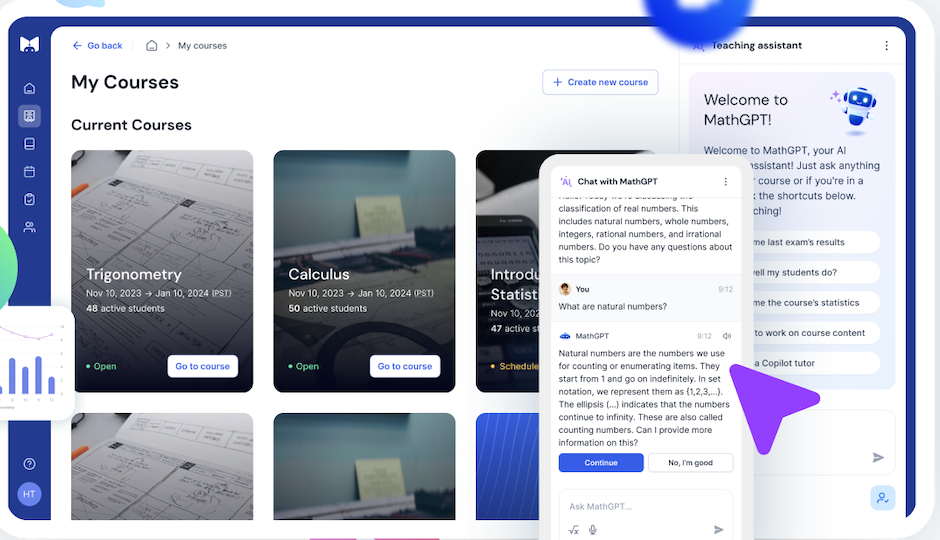
Let’s be honest—AI in classrooms has been a rollercoaster. On one hand, students love the shortcuts, and on the other, teachers are side-eyeing ChatGPT like it’s a secret partner in every homework submission. But here comes MathGPT.ai, a platform that decided to flip the script. Instead of being another “answer machine,” it launched with the bold mission of being an anti-cheating AI tutor for students and a teaching sidekick for professors.
After a pilot across 30 U.S. colleges, MathGPT.ai is scaling up this fall, with schools like Penn State, Tufts, and Liberty University hopping on board. The magic? This AI doesn’t just hand out answers like candy. Nope. It’s designed with a Socratic style—asking guiding questions, nudging critical thinking, and basically being that patient tutor who refuses to let you give up after the first “I don’t get it.” For students, that means learning sticks. For professors, it means fewer “copied straight from Google” vibes.
On the faculty side, MathGPT.ai feels less like Big Brother and more like a customizable teaching tool. Professors can now decide when students are allowed to chat with the AI, how many tries they get per problem, and whether they need to upload handwritten work for review. It’s built to encourage independence while still being supportive, which is the sweet spot in education. Bonus points? Students get unlimited practice questions that don’t affect their grades, taking away the pressure while still building skills.
Accessibility is also front and center. With integrations into major LMS platforms like Canvas, Blackboard, and Brightspace, plus screen reader compatibility, audio mode, and captioned video lessons, MathGPT.ai is designed for everyone—including learners with disabilities. And yes, the video lessons are narrated by AI voices of historical icons like Ben Franklin and Einstein. (Imagine Einstein walking you through calculus. Kinda cool, right?)
Safety guardrails are tight too. Unlike open chatbots that wander into “life advice” or awkward convos, MathGPT.ai keeps things strictly academic. And while the company admits no AI is perfect, they’ve put a system in place where students can report mistakes—and even get rewarded if they catch one.
With plans to expand into subjects like chemistry and economics, plus a mobile app in the works, MathGPT.ai feels less like a gimmick and more like the future of AI in education. Whether you’re the stressed-out student or the overwhelmed professor, this tool is proof that AI doesn’t just have to “do the work”—it can actually teach you how to do it better.




